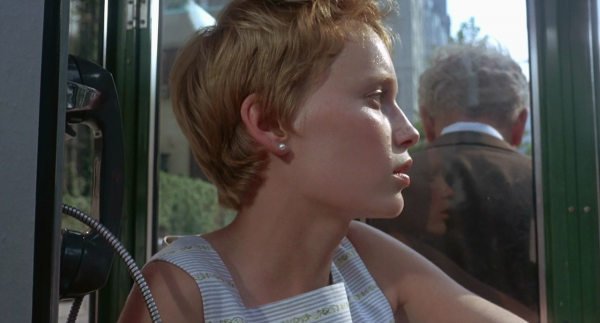BRIDE OF FRANKENSTEIN (James Whale, 1935)
Film Forum
209 West Houston St.
Sunday, October 27, $7, 11:00 am
212-727-8110
www.filmforum.org
 At the start of James Whale’s Frankenstein, actor Edward Van Sloan, who plays Dr. Waldman in the film, steps out from behind a curtain and tells the audience that what they are about to see “is one of the strangest tales ever told. It deals with the two great mysteries of creation; life and death. I think it will thrill you. It may shock you. It might even horrify you. So, if any of you feel that you do not care to subject your nerves to such a strain, now’s your chance to uh, well — we warned you!” Instead of staying away, people flocked to the theaters, making Frankenstein such a hit that Universal produced a sequel, although it took longer than expected. At the beginning of Whale’s 1935 follow-up, Bride of Frankenstein, Mary Wollstonecraft Shelley (Elsa Lanchester) tells Percy Bysshe Shelley (Douglas Walton) and Lord Byron (Gavin Gordon), “The publishers did not see that my purpose was to write a moral lesson, the punishment that befell a mortal man who dared to emulate god,” letting them know that there was more to her story, picking up where the first movie left off. The Monster (Boris Karloff again, billed only by his last name) has survived the fire, and he is on the loose. Dr. Henry Frankenstein (Colin Clive, reprising his role as the godlike creator) has survived as well and is ready to finally marry his sweetheart, Elizabeth (Valerie Hobson, taking over for an ill Mae Clarke).
At the start of James Whale’s Frankenstein, actor Edward Van Sloan, who plays Dr. Waldman in the film, steps out from behind a curtain and tells the audience that what they are about to see “is one of the strangest tales ever told. It deals with the two great mysteries of creation; life and death. I think it will thrill you. It may shock you. It might even horrify you. So, if any of you feel that you do not care to subject your nerves to such a strain, now’s your chance to uh, well — we warned you!” Instead of staying away, people flocked to the theaters, making Frankenstein such a hit that Universal produced a sequel, although it took longer than expected. At the beginning of Whale’s 1935 follow-up, Bride of Frankenstein, Mary Wollstonecraft Shelley (Elsa Lanchester) tells Percy Bysshe Shelley (Douglas Walton) and Lord Byron (Gavin Gordon), “The publishers did not see that my purpose was to write a moral lesson, the punishment that befell a mortal man who dared to emulate god,” letting them know that there was more to her story, picking up where the first movie left off. The Monster (Boris Karloff again, billed only by his last name) has survived the fire, and he is on the loose. Dr. Henry Frankenstein (Colin Clive, reprising his role as the godlike creator) has survived as well and is ready to finally marry his sweetheart, Elizabeth (Valerie Hobson, taking over for an ill Mae Clarke).
But their plans are interrupted by the arrival of the extremely strange and menacing Dr. Pretorius (Ernest Thesiger), who thinks that the Monster deserves a mate. Meanwhile, the Monster is traipsing through the woods, finding a friend in a blind violin-playing hermit (O. P. Heggie) and learning how to speak as he tries to avoid capture by the determined Burgomaster (E. E. Clive). Whale, who initially did not want to direct the sequel, has a ball with the film, infusing it with religious imagery, including having the Monster lifted up on a cross in a graveyard, and campy humor, particularly when Dr. Pretorius shows off his collection of rather silly miniature creatures to Dr. Frankenstein. Karloff, who was billed above the title, takes the Monster to another level, achieving sympathy as he learns more about what he is and comes to understand such feelings as longing and loneliness. Una O’Connor is a hoot as the loudmouth Minnie, practically serving as a one-woman Greek chorus. The scene in which the Monster waits for and then meets his mate (Lanchester, who is listed in the credits only as Mary Shelley) is a genuine cinema classic, layered with depth and meaning. While the first film was, and still is, shocking and horrifying, just as Van Sloan warned, the second is actually stranger, more satisfying, and, at its heart, more human. Interestingly, Bride of Frankenstein, which experienced various types of censorship back in the mid-1930s, is screening on October 27 at 11:00 am as part of the Film Forum Jr. series for kids and families and will be preceded by Ub Iwerks’s 1937 cartoon Skeleton Frolics for Halloween week; the series continues November 3 with Frank Capra’s Mr. Smith Goes to Washington, appropriately during election week, and later will show George Seaton’s 1947 Miracle on 34th Street on the Sunday before Thanksgiving.
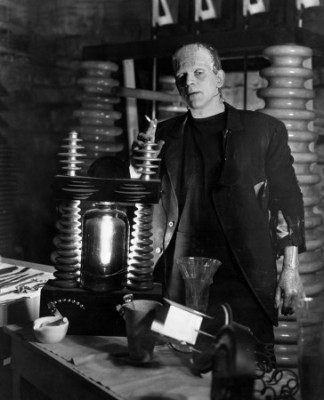
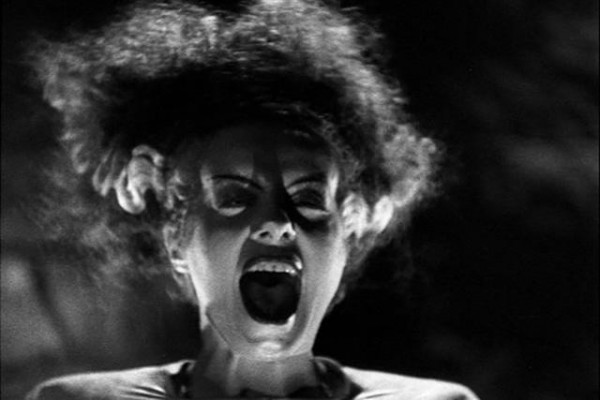
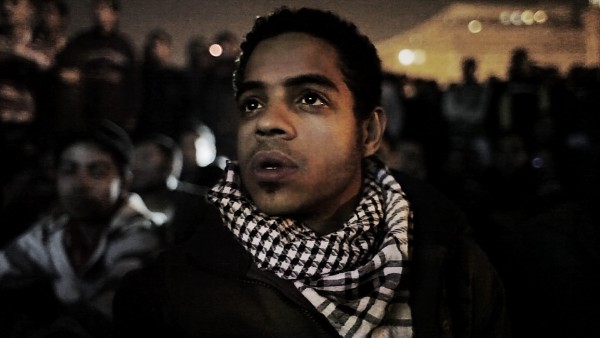
 “During the early days, we agreed to stay united no matter what,” Ahmed Hassan tells those around him in Jehane Noujaim’s powerful and important documentary The Square. “When we were united, we brought down the dictator. How do we succeed now? We succeed by uniting once again.” But Ahmed, one of several Egyptian revolutionaries who Noujaim follows for two years in the film, finds that it is not that easy to bring everyone together, as the government leaders continue to change and factions develop that favor the military and the Muslim Brotherhood. Putting her own life in danger, Noujaim (The Control Room, Startup.com) is right in the middle of it all as she shares the stories of Ahmed, a young man who is determined to see the revolution through until peace and justice prevail; Magdy Ashour, a member of the Muslim Brotherhood who must choose between his own personal beliefs and that of his power-hungry organization; and Khalid Abdalla, the British-Egyptian star of The Kite Runner and United 93 who becomes an activist like his father, serving as the revolution’s main link to the international community through the media and by posting videos. In The Square, a 2013 New York Film Festival selection, Noujaim also introduces viewers to human rights lawyer Ragia Omran, protest singer Ramy Essam, and filmmaker Aida El Kashef, none of whom are willing to give in even as the violence increases.
“During the early days, we agreed to stay united no matter what,” Ahmed Hassan tells those around him in Jehane Noujaim’s powerful and important documentary The Square. “When we were united, we brought down the dictator. How do we succeed now? We succeed by uniting once again.” But Ahmed, one of several Egyptian revolutionaries who Noujaim follows for two years in the film, finds that it is not that easy to bring everyone together, as the government leaders continue to change and factions develop that favor the military and the Muslim Brotherhood. Putting her own life in danger, Noujaim (The Control Room, Startup.com) is right in the middle of it all as she shares the stories of Ahmed, a young man who is determined to see the revolution through until peace and justice prevail; Magdy Ashour, a member of the Muslim Brotherhood who must choose between his own personal beliefs and that of his power-hungry organization; and Khalid Abdalla, the British-Egyptian star of The Kite Runner and United 93 who becomes an activist like his father, serving as the revolution’s main link to the international community through the media and by posting videos. In The Square, a 2013 New York Film Festival selection, Noujaim also introduces viewers to human rights lawyer Ragia Omran, protest singer Ramy Essam, and filmmaker Aida El Kashef, none of whom are willing to give in even as the violence increases.
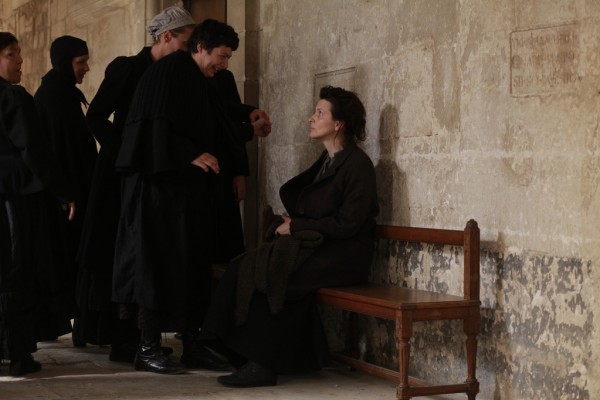
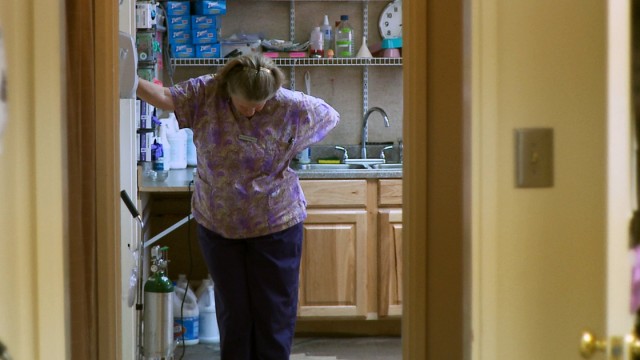
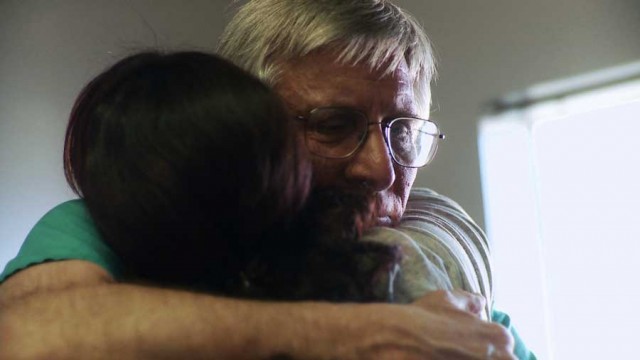
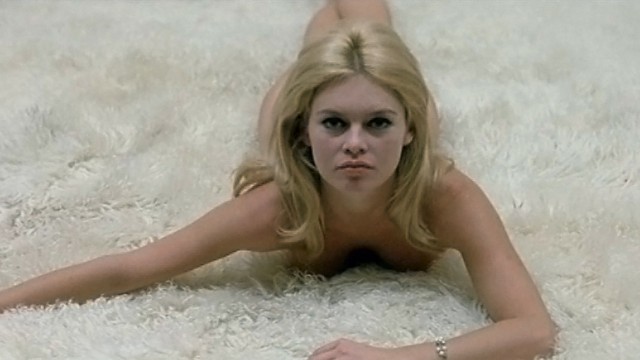
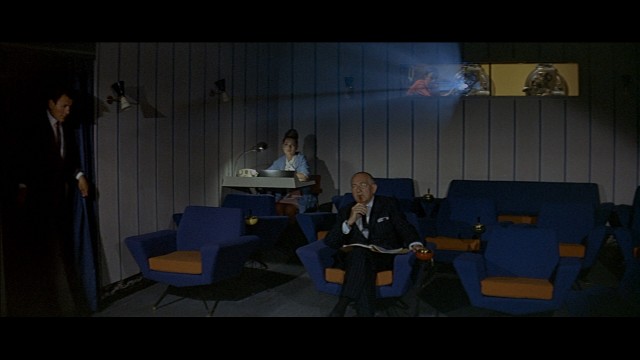
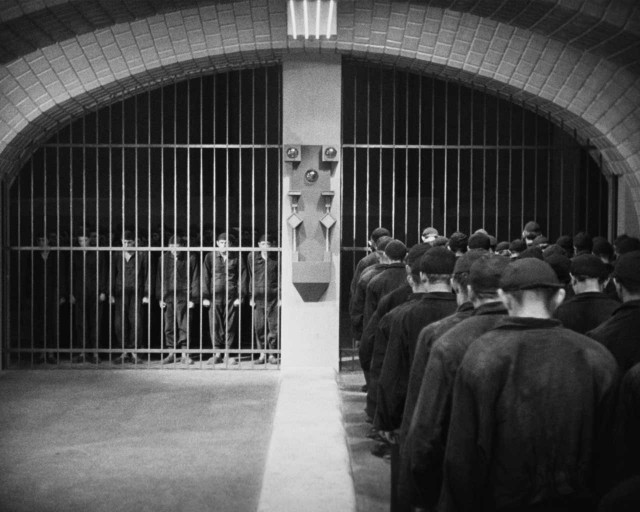
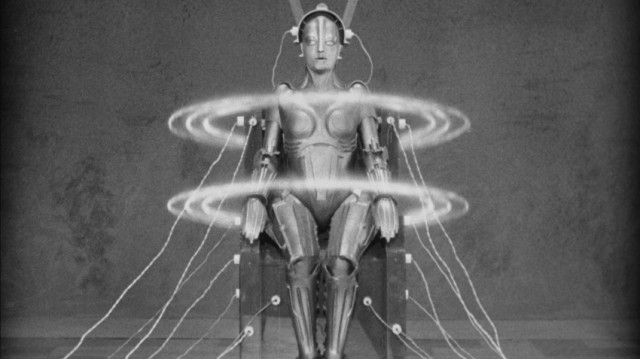
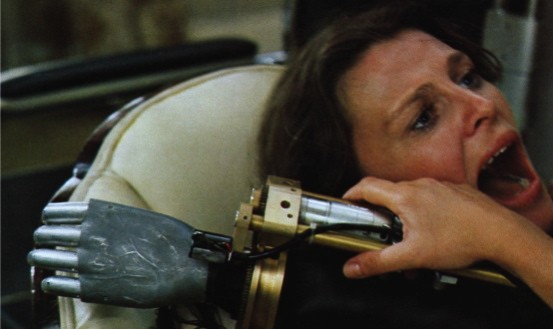
 Back at Film Forum for the first time in seventeen years, the “Son of Summer Sci-Fi, Fantasy & Horror” series continues on August 30 with an inspired double feature of movies dealing with alternative forms of motherhood. First up is Donald Cammell’s creepy, claustrophobic 1977 futuristic thriller Demon Seed. Based on the novel by Dean R. Koontz, the film stars a surprisingly game Julie Christie as Susan Harris, a frustrated housewife whose husband, Alex (Fritz Weaver), is the leader of a team that has built a master computer known as Proteus (voiced by Robert Vaughn). When Alex goes off for several months to further Proteus’s already impressive attributes, the supercomputer starts developing a mind of its own, locking Susan in the house and deciding she must give birth to its child. Cammell, who codirected Performance with Nicolas Roeg, fills Demon Seed with trippy, psychedelic visuals and cool technological flourishes, along with an electronic score by Ian Underwood and Lee Ritenour supplementing Jerry Fielding’s central musical themes. The film delves into suburban paranoia with Toffler-esque flare and an Orwellian fear of artificial intelligence. The film harkens back to Stanley Kubrick’s 2001: A Space Odyssey and Joseph Sargent’s Colossus: The Forbin Project while also influencing such future films as John Badham’s WarGames, which also names its supercomputer “Joshua” and casts Weaver look-alike John Wood as computer creator Dr. Stephen Falken.
Back at Film Forum for the first time in seventeen years, the “Son of Summer Sci-Fi, Fantasy & Horror” series continues on August 30 with an inspired double feature of movies dealing with alternative forms of motherhood. First up is Donald Cammell’s creepy, claustrophobic 1977 futuristic thriller Demon Seed. Based on the novel by Dean R. Koontz, the film stars a surprisingly game Julie Christie as Susan Harris, a frustrated housewife whose husband, Alex (Fritz Weaver), is the leader of a team that has built a master computer known as Proteus (voiced by Robert Vaughn). When Alex goes off for several months to further Proteus’s already impressive attributes, the supercomputer starts developing a mind of its own, locking Susan in the house and deciding she must give birth to its child. Cammell, who codirected Performance with Nicolas Roeg, fills Demon Seed with trippy, psychedelic visuals and cool technological flourishes, along with an electronic score by Ian Underwood and Lee Ritenour supplementing Jerry Fielding’s central musical themes. The film delves into suburban paranoia with Toffler-esque flare and an Orwellian fear of artificial intelligence. The film harkens back to Stanley Kubrick’s 2001: A Space Odyssey and Joseph Sargent’s Colossus: The Forbin Project while also influencing such future films as John Badham’s WarGames, which also names its supercomputer “Joshua” and casts Weaver look-alike John Wood as computer creator Dr. Stephen Falken.